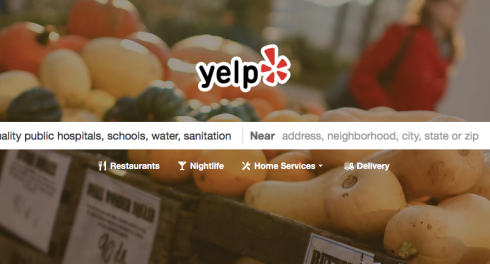Dear Readers,
Welcome to the latest TAI Weekly!
This week we dive into the information for accountability debates, tax absurdities, historical climate accountability reckonings, “stuck” INGOs, explain why funders should not be afraid of embracing the boring and ask who is really bearing the costs of corruption.
Don’t forget to take advantage of the jobs, calls for proposals and event listings!

Michael,
TAI’s Executive Director
Highlights
- Information for accountability: between being and seeming
- Evasion haven vs rule of law at home
- Past colonialism, present depredation. The future lies with transparency?
- Funders! Eyes on these learnings
- TAI spotlight
Information for accountability: between being and seeming

Image Credit: The Business Journals
Deliberate disinformation campaigns are distorting information systems around the globe. Tessa Knight details disinformation rising across Africa and the need to respond with expanded fact-checking and collaboration with social media organizations.
Sean Boots worries about bureaucratic default to public service secrecy and calls for an “open culture of service” even if it can be uncomfortable. Can that openness extend to algorithms? Katya Abazajian worries that data and technology have become tools to govern, but most people have no say in how those systems are run.
Mark Weiller highlights risks of false transparency: Is the duty of authorities to publish information the same as open government? Does passing access to information acts guarantee access to information and limit censorship?
Similar debates extend to multilateral institutions. The Asian Infrastructure Investment Bank faces renewed scrutiny regarding its public access to information policy and whether it can credibly claim to be a responsible investor.
Even if lucky enough to secure access to quality information, skills, tools and smart warehousing are still needed to take advantage of data. Aura Martinez sees the promise of a wave of fiscal transparency portals that have emerged in Latin America. The new Violation Tracker in the UK enables ready searching of corporate regulatory infringements, while the Open Up Guide on Land Governance helps governments publish land-related data to help assure public benefit.
Evasion haven vs rule of law at home
G20 leaders gathered in Rome officially endorsed the OECD-shaped global tax reform this past weekend, although the EU Tax Observatory find that the effects of the global minimum tax will skew toward the wealthy countries. Meantime, wealth tax debates heat up in the US (all good fuel for satire).
Much still to be done in eliminating tax havens. Read how the United Kingdom presides over a third of the world’s lost taxes, some from Latin America where offshore flows remain high. Almost a third of those public officials referenced in the Pandora Papers come from the region, prompting calls to, yes, improve disclosure from offshore havens, but also boost rule of law at home to reduce the appeal of secreting money abroad.

Image Credit: Gen Z´ Words
Meantime, The Sentry details Kenyan anti money laundering weaknesses as it heads into a critical national risk assessment. Mozambique is still roiling from the impacts of the $2 billion “tuna bond” scandal. The $475m fines agreed to by Credit Suisse for its role in enabling the deal, seems out of whack with the consequences that ordinary Mozambicans will continue to live. You can guess that women will be most adversely affected. Recent research by Staci Samuels and Connie Gonzalez urges that anti-corruption programs and legislation be designed with gender-specific challenges front of mind.
Some things are looking up though! Peru is in the process of establishing a set of regulations aimed at strengthening their fiscal and tax policy and increasing transparency of the financial system. Aniceta Baltar of the Concerned Citizens of Abra for Good Government shares valuable lessons (not least for donors) from a citizen monitoring initiative covering the biggest poverty reduction program in the Philippines.
Joe Powell takes the Foreign, Commonwealth and Development Office’s priorities under its open societies and human rights directorate as a frame to suggest ways the UK can build a better version of democracy at home that will reinforce its engagement abroad.
Past colonialism, present depredation. The future lies with transparency?

Image Source: Carlos Amato in New Frame
The global tax deal and this week’s COP26 Climate Change Conference provide a rare opportunity for tax and climate activists to join forces to prioritize revenues to fund an urgent, transparent climate response. Further data to underpin the need for urgency in the World Bank’s new Changing Wealth of Nations report – the share of total global wealth in renewable natural capital is decreasing. This unsustainable path had its catalyst in colonisation, says Syed Mohammad Ali. Great power rivalry still drives behaviours – see the current battle for control of rare earth metals.
The Extractive Industries Transparency Initiative (EITI) outlines key questions for oil, gas dependent countries for the energy transition. Anj Dacanay fears the Initiative is failing to hold Western oil, gas, and mining companies to the same standard, so undermining prospects to halt harassment of land and environmental activists in the Philippines. Athayde Motta urges Brazil to join to address transparency gaps and empower local rights holders. Currently, “It’s like we don’t exist,” say those living near Minas-Rio in Brazil’s mining heartland.
Funders! Eyes on these learnings
Dana Schmidt highlights how, “the tenets of effective philanthropy clash with skills that many program officers have been grooming their entire lives.” It can be hard for funders to embrace the boring.
That’s an insight, too, for the fast-growing next generation of philanthropists as we start an unprecedented wealth transfer. Generation Pledge aims to create a global community of inheritors from ultra-high-net-wealth families to generate greatest positive impact. No doubt they will benefit from advice of philanthropic support networks. Interesting to learn that some of those organizations (including those often touting the importance of transparency) are yet to reveal how much MacKenzie Scott gave to support their work.
Reimagining the INGO synthesis report unpacks the ecosystem for international civil society, where the system gets stuck and offers some areas of possibility.
Jake Bowers and Rebecca Wolfe lay out ten conversations to have in order to evaluate your organization’s policies and ensure a successful project, while Thomas Aston, Chris Roche, Marta Schaaf, and Sue Cant detail the challenges of monitoring and evaluating politically informed and adaptive programs in the international development field.
Finally, Rose Worden and Patrick Saez examine constraints faced by major government humanitarian donors in making funding decisions
TAI spotlight
Transparency and Accountability Initiative’s Executive Director, Michael Jarvis draws on TAI member conversations to reflect on how funders can make the strategy process more open and intelligible to grantee partners, fellow funders, and the fields they serve.
Open Society Foundations Africa Director, Muthoni Wanyeki gives an overview of the battered state of civil activism in Africa and how to empower these activists.
Chandler Foundation‘s CEO, Tim Hanstad moderated a session on reasons for funder partnerships and collaborations and the potential advantages and disadvantages of joining funder collaborations at the Innovations in International Philanthropy Symposium last month.
Job Listings
Director, Accountability at Human Rights First –November 18, 2021
Jobs at I-APS – Ongoing
Program Officer on Governance at National Democratic Institute – Ongoing
Temporary: Project Assistant with Democratic Governance Team at National Democratic Institute – Ongoing
Senior Advisor on Corruption and Illicit Finance (Myanmar) at The Sentry – Ongoing
Strategic Partnerships Intern at The Fund for Global Human Rights – Ongoing
Trustee – Voluntary, Part-time at Integrity Action– Ongoing
Jobs at TAI members
Job postings at Hewlett Foundation – Ongoing
Job postings at MacArthur Foundation – Ongoing
Job postings at Open Society Foundations – Ongoing
Job postings at Luminate – Ongoing
Job postings at Ford Foundation– Ongoing
Job postings at FCDO – Ongoing
Calls/Opportunities
Participate: Short Film contest on Unveiling our stories: Victims of corruption – November 10, 2021
Women’s leadership mentoring program in Nepal – November 16, 2021
Board of Trustee at Integrity Action – December 31, 2021
West Africa Civil Society Institute (WACSI) call for papers and articles – Open year-round
Free digital security training– Ongoing
Call for proposals: Informality, tax, and the state – Proposals accepted on a rolling basis
Calendar
Global Investigative Journalism conference – November 3-5, 2021
Real change? How a time of crisis has shifted philanthropy – November 4, 2021 (2-3.30pm ET)
Exchange 2021: The Systems Summit – November 9-10, 2021
A global theory of change for participatory budgeting – November 16 2021 (11am – 12.30pm EDT)
Resolving citizens’ complaints: what makes it happen? Who owns the process? – November 23, 2021
National Tax Association conference – November 18-20, 2021
Political Polarization and Municipal Government Accountability during the COVID-19 Pandemic in Mexico – December 8, 2021
The Summit for Democracy – December 9-10, 2021
Open Government Partnership global summit – December 13-17, 2021
International Convention on Anti-Corruption, Good Governance, and Human Rights – April 21-22, 2022 (Boston, MA)
Want to stay updated on happenings around the TPA sector, sign up for our newsletter here

